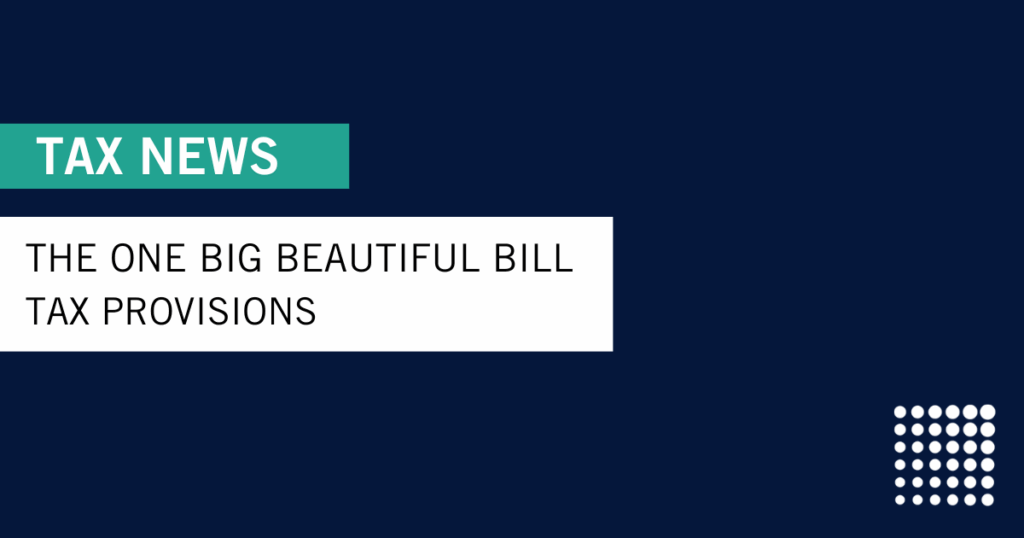Earlier this year, we published an article in Digital News Monthly with an outline of the new Qualified Business Income Deduction (QBI) QBI deduction. As a quick refresher, this deduction allows flow through entities, such as S Corporations and partnerships, to exclude up to 20% of the flow through income from the taxpayer’s taxable income.
To take advantage of the QBI deduction, taxable income must be below the $315,000 threshold. This limitation allows a dental professional to be able to take full advantage of the 20% QBI before any phaseouts. A phaseout of the deduction occurs up to $415,000 of taxable income.
In many cases, a doctor might assume they won’t qualify for the deduction based on their taxable income being over $315,000, however with some adjustment, they could get closer than they think.
Let’s look at an example of how to reduce taxable income:
Practice Collections $1,400,000
Net Doctor Income @ 40% 560,000
Doctor Personal Expenses (60,000)
Net Taxable Income to Dr. 500,000
In this situation, the doctor pays themselves wages of $275,000 and has $225,000 flow through. The $225,000 does not qualify for the 20% QBI deduction because the doctor has income more than $415,000. Assuming the doctor has a filing status of married filing joint, the federal taxes would be $126,500.
Now let’s assume the same doctor establishes a cash balance plan for the practice at the cost of $100,000. This lowers the taxable income from the practice to $400,000 for the doctor. Assume the doctor pays the same salary of $275,000 and now has flow through income of $125,000. As a second investment, the doctor invests personally in a qualified conservation easement for $25,000. The easement will yield a charitable tax deduction of approximately $100,000. Under the new tax law for charitable contributions, itemized deductions are no longer subject to a phaseout based on a taxpayer’s income. In this example, the full charitable deduction lowers taxable income to $300,000.
This same doctor will now receive a 20% QBI deduction on the $125,000 flow through income or $25,000. This lowers the taxable income to $275,000. The doctor’s federal taxes are now $54,600. This is a decrease of $71,900.
Business
Net Taxable Income to Dr. $500,000
Cash Balance Plan (100,000)
Net Business Income 400,000
Personal
Salary 275,000
K-1 Flowthrough 125,000
Charitable Deduction (100,000)
QBI Deduction (25,000)
Net Taxable Income to Dr 275,000
As a summary of this example, the doctor paid $100,000 for the new cash balance plan and $25,000 for the qualified conservation easement for a total of $125,000. The doctor’s federal taxes decreased by $71,900 or by 57% of the cash outlay. In this scenario, the doctor only funds $53,100 of the $125,000 cash outlay since the tax savings of $71,900 covers the difference.
This is just one example in which we guide our clients to take advantage of the potential to increase savings and decrease taxes. Clients that have significant personal savings, that are saving dollars after tax, or are in the process of selling a percentage of their practice to an associate may be prime candidates to take advantage of this type of planning. You should talk to you planner to see if this strategy and your risk tolerance are a match.
Meals & Entertainment
The new lax law has also brought significant changes to the deductibility of meals and entertainment. In previous years, doctors could deduct 50% of business related meals and 100% of expenses for meals provided as a fringe benefit for employees. There have been many articles published and confusion over what the new tax law would allow. Based on recent communication from the IRS, CWA is recommending the following to doctors:
– Staff Meals – These include meals provided by the employer for the employee’s convenience, such as when working overtime or when an employee is required for a meeting. These types of meals are now 50% deductible.
– Business Meals – These include meals with patients or for doctors and employees when traveling. These meals will continue to be 50% deductible and CWA is recommending doctors continue to track these separately as in prior years. We still expect to see further guidance from the IRS.
– Holiday Parties/Recreational Activities – If done as an event for all employees in your office then they remain 100% deductible.
– Entertainment Expenses – The expenses related to a sporting or an entertainment event tickets and meals during an event are no longer deductible. Also gone are charitable deductions for contributions to the right to purchase tickets to a college’s athletic events.
CWA will continue to publish updates as guidance is issued by the IRS on not only these two important changes, but also in other areas impacting the dental profession.
Get more insight on the tax law with our previous update. For personal questions or guidance, reach out to your CWA planning team, or cainwatters.com/contact.














